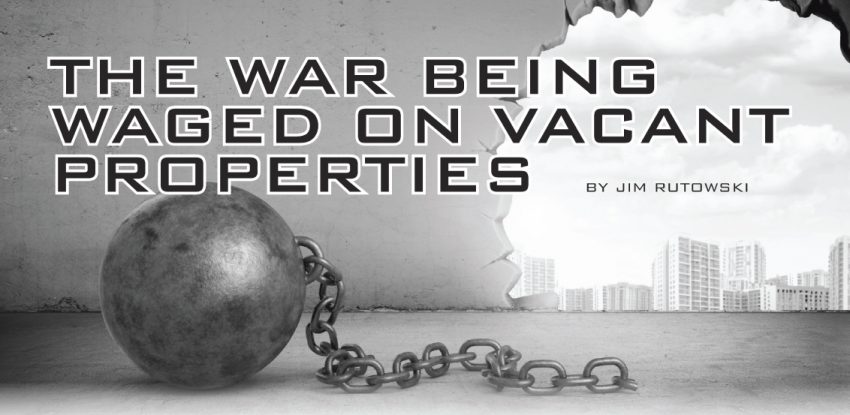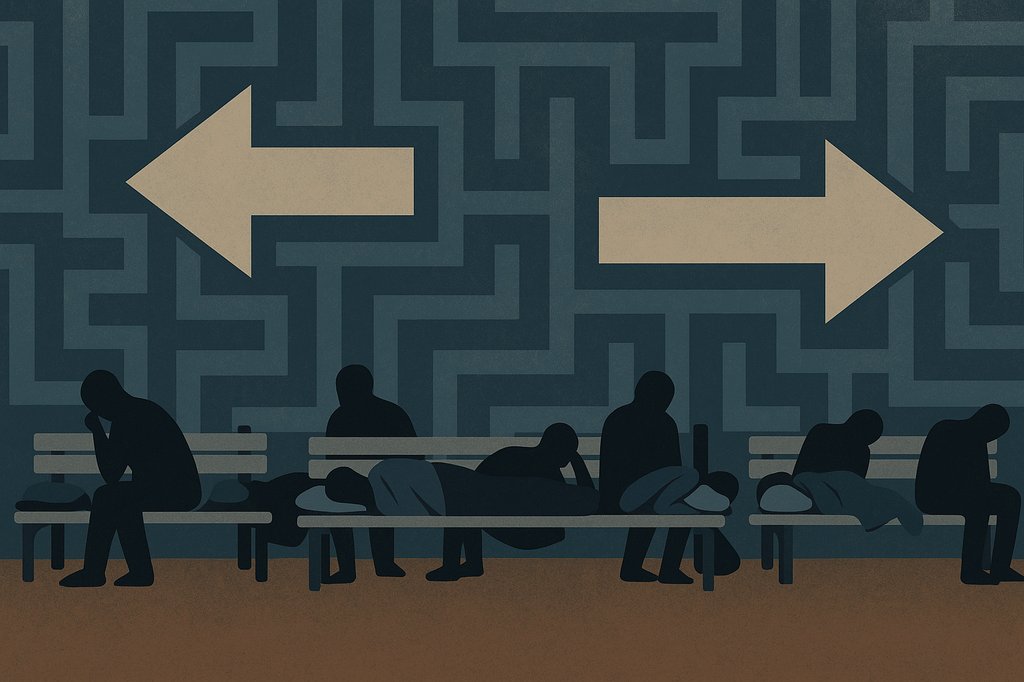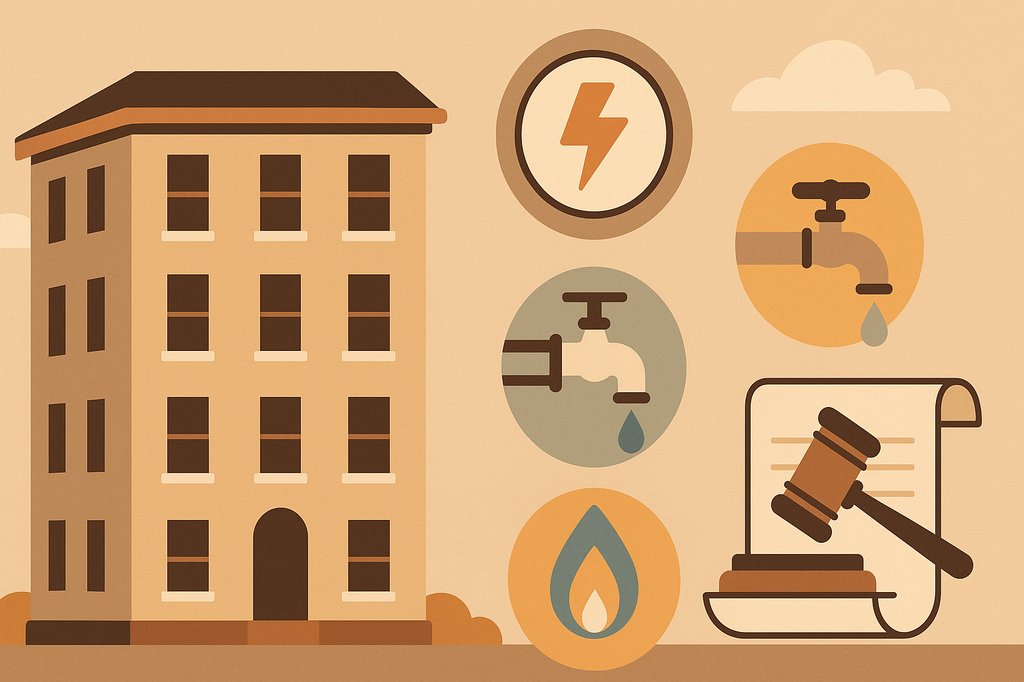The War Being Waged on Vacant Properties

James Madison once said that “the rights of person, and the rights of property, are the objects, for the protection of which Government was instituted.” This line has been blurred a bit, as the government instructs owners: however sacrosanct your property ownership rights are, an unoccupied property must be used for the social good.
Caught in the crosshairs of an affordable housing dearth and a homeless epidemic, vacant property owners have essentially been told to use their underutilized assets for the benefit of all. If the property is vacant, it can be subjected to a punitive tax because it could be put to better use. Worse yet, the idle property can be overrun by squatters who unlawfully occupy the dwelling with impunity. The viral Moms-4-Housing movement is a lesson in the advancement of squatters’ rights. Single, working women who were unable to afford suitable housing for their family made for a sympathetic bunch and spawned an emboldened movement that advocated for illegally occupying dwellings without paying rent, much less having a rental agreement.
When single, working women and their children settled comfortably into to a vacant property at 2928 Magnolia Street without permission, their cause was celebrated by tenants’ advocates and officials who bemoaned exclusionary housing policies and rising rents, though sober-minded individuals stopped short of condoning an unauthorized takeover of a vacant home as an acceptable means to accomplish meaningful change. After an Alameda County judge ruled that the women were squatting illegally and were forcibly removed from the premises, the movement has been re-energized and so by being evicted, the crusading moms may have lost the battle but won the war.
Real estate attorney Daniel Bornstein of Bornstein Law says that if squatters are allowed to stay implanted, it would open a floodgate of people moving into vacant properties and staking a claim to the right of occupancy. He says that there is a sense of unfairness in the expectation that owners should shoulder the responsibility of solving a housing crisis that is owed to a multiplicity of factors, yet landlords get inordinate blame for intractable housing issues and market forces beyond the control of our fraternity. Bornstein says solving the housing crisis is a community effort, but vacant property owners have become an easy whipping boy.
Lawmakers have been empathetic to groups that rail against rising rents, epic commutes and gentrification, but officials have not openly embraced the hijacking of vacant properties. Instead, local governments take a more insidious fight to vacant property owners by taxing them. In Oakland, for example, properties that go “unused” for more than 50 days are subject to a punitive tax and the funds are earmarked for homeless programs and services, affordable housing, code enforcement, the cleanup of blighted properties and illegal dumping.
Initially, the “blow” was $6,000 for holding onto vacant lots and $3,000 for not renting out units in apartment buildings, but Oakland later eased the sticker shock by cutting the $6,000 annual fee in half.
Implicit in this tax, of course, is anyone who has a property deemed to be underutilized are contributing to these social woes. You may get some argument from owners who just can’t scrape up enough funds to build, or face maddening regulations that are a barrier to development.
It hasn’t been entirely clear what qualifies as an “unused” property anyway – vacancy is a broad term that has proven difficult for the city to define. In a rather unscientific approach, Oakland has been mailing letters to owners of properties suspected as vacant, and the onus is then on owners to inform the City that they are not. Just as uncertain is what constitutes a financial hardship that would give a reprieve to owners. Among the ten exemptions to Measure W, owners would escape the taxes if the penalty would create a “financial hardship due to specific factual circumstances” or show the property is vacant because of a “demonstrable hardship that is unrelated to the owner’s personal finances.” Just how down and out the owner must be is unclear, although the law carves out a clear exemption for the very poor. “Very low income” owners, or seniors with “low income,” or owners receiving Supplemental Security Income for a disability or Social Security / Disability Insurance benefits and has income under certain thresholds will not be taxed.
Not to be undone, San Francisco is floating Proposition D, which says if you have a vacant store, you are a bad actor and need to be taxed $5,000 for the first year. If the store front remains empty, the City will up the ante by taxing an additional $1,000 per square foot. Other cities in the Bay Area and throughout California have frowned upon seeing blank canvases that could be converted to livable spaces and put a target on the backs of vacant property owners who dare use their property as they see fit.
As for the Oakland property besieged by the Moms-4-Housing activists, the owner succumbed to public pressure and agreed to sell the investment property to the nonprofit Oakland Community Land Trust and the mothers are expected to return, but not before the movement for squatters’ rights has gained momentum – even generating praise from Governor Newsom. Daniel Bornstein told the San Francisco Chronicle that he’d be more sympathetic if the mothers occupied a vacant government building, adding that “in the end, the housing crisis is a community issue and a single owner isn’t the sold person to be the sole person responsible for the burden.” Unfortunately, this message has fallen on deaf ears, but if it’s heard by James Madison, he is rolling in his grave.
Jim Rutowski is the author of the book, “Wealth and Success,” a self-help book, and has been a frequent contributor of articles of interest to property owners.







